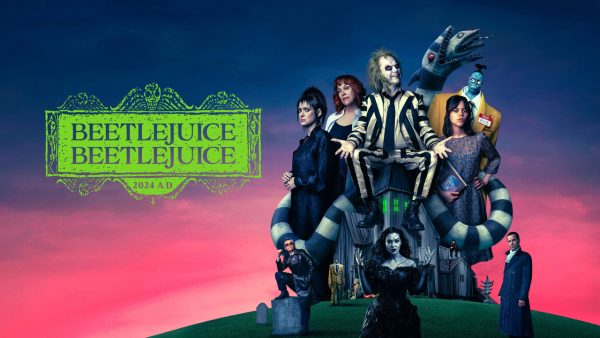Squid Game’s social commentary brings real-world issues to light
Editor’s note: Spoilers for Netflix’s “Squid Game” are included in the following article.
When a new streaming series is raved about but a person has not seen it, the next step is to immediately find the series and watch it. This is the impact that social influence has on personal behavior, which is exactly what this series presents.
Netflix’s original Korean drama series “Squid Game” has triggered a global discussion. For some time, no one invested in the series in South Korea because it was deemed to be impractical content. But now it may become the hottest series in Netflix’s history.
The plot of “Squid Game” has some distinctive American drama features. It tells the story of 456 players who receive a mysterious invitation to participate in a survival game on an isolated island. If they win six rounds of the game, the winner receives 45.6 billion won ($38.5 billion U.S. dollars) while the losers pay the price of their life.
The drama is based on extreme scenarios. All the characters are marginal people such as people who are unemployed, unable to pay their bills or have criminal records. Playing this deadly game is their only chance at financial gain.
The series follows protagonist Seong Gi-Hun. This perspective gives the audience a glimpse at the participants’ mental state. No matter what kind of people they were before, now they have a common identity: a loser.
By that we mean they are all classified as losers in their society. They are in debt, unaccompanied and whipped by social rules. They all firmly believe that their failure is because they have no money. They are people who believe that if they have money, all their problems will be solved.
Because of this, the organizers of the game decided to lure them with something they cannot resist: money! The participants are so desperate for this money, they will do whatever it takes to fight for it.
As for whether money can solve their dilemmas, it does not matter. What matters is that they think so.
The game is divided into six portions, and there is an additional game that occurs in the middle of the night. To ensure the progress of the game, the game organizers target certain players like the poor and people who gamble.
Before the game, the players were approached by a mysterious man on the subway. He promised they would only play a small game with him. If he lost, he would give them money. He also entices them to play more games with much higher stakes. Gi-Hun accepts but is then knocked unconscious. He awakens in a dormitory with 455 other players.
Each of the players are undertaking an extreme gamble. They all have a sense of omnipotence – they believe they will be the one to win. Even if countless studies on gambling have shown that the final winner is only the one who is running the game. This is a typical manifestation of the overwhelming sense of almighty. Therefore, it’s not about the winning or losing of the gambling game, but the psychological defects of the people.
The premise of “Squid Game” has some similarities to “The Hunger Games” and “Gladiator.” It features people are willing to watch the death struggle of the so-called losers to add a little fun to their ordinary life. Humans have always been cruel to other humans.
Helping each other is important for the betterment of society and key to our humanity. But such behavior is very rare in “Squid Game.” This isn’t necessarily because society is broken. Rather, this group of people were intentionally selected by the game organizers because of their greed.
Kang Sae-byeok’s behavior is the result of the environment she grew up in. Ji-yeong has a terrible father who has not been punished for killing her mother. Ali is exploited by his boss, but he cannot get justice for himself. Seong Gi-Hun is a victim of the workers’ movement. Some of them are people trying to maintain their conscience in this malicious society, and others are part of this malicious society.
These greedy people only want to win and do not hesitate to take others’ lives. A few kind people can rely on mutual trust and help to go on. Despite having to pay a great price and almost destroying the whole army, one participant lived to the end.
While the show was able to reveal certain social truths, does it only reveal the cruel side? If so, Seong Gi-Hun should have died in Cho Sang-woo’s hands. The director left a window and believed that a better social model exists. In the show’s second season, it will focus on the beginning of change when good people can mature and portray kindness.
I hope in the second season, Seong Gi-Hun understands what happened to him and his partners, recognizes the cruel side of the world and figures out how to change it.
Your donation will support the student journalists of Park University. Your contribution will allow us to cover our annual website hosting costs, freeing up other funds for equipment, printing and training.








Joanne • Dec 28, 2023 at 4:14 pm
There’s a difference between “greed” and desperation. Squid games seems to commentate more about the Rich’s ability to manipulate the struggling desperate for the sole purpose of the ability to do so for enjoyment. Such is the way where the richest of the rich get to manipulate the food industry, the medical care of the poor and even wasting money on space travel.